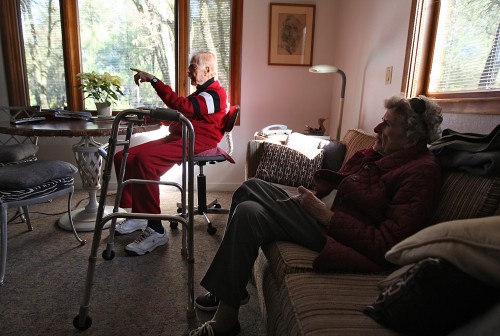
By LEXI LIM and MAVERICK FREEDLANDER
Staff writers
Brittany Maynard was a twenty nine-year-old woman who lived in Portland, Oregon with her husband Dan Diaz. Brittany moved to Oregon from California because assisted suicide is illegal in California but legal in Oregon and four other states, and she was diagnosed with a terminal disease that only gave her six months left to live. She underwent two surgeries, yet her tumor and cancer came back more aggressively than before. Maynard then started researching and considering her options. Ultimately, she discovered that the doctors were right; there is currently no treatment for brain cancer. Therefore, she decided that she would die with dignity by ingesting a set of pills prescribed to her rather than endure the pain that the later stages of brain cancer bring. Brittany Maynard took her own life on November 1.
Maynard worked as an advocate volunteer of the organization Compassion and Choices in which members help those who choose to pass away via assisted suicide. Being an advocate volunteer affected her decision because she saw what the organization does to allow patients with terminal diseases to take their lives into their own hands. According to her website, working for the organization allowed her to believe that assisted suicide was a possible choice. Compassion and Choices helps patients sort out their options and receive advice from professionally trained counselors. The organization allows people with great suffering to take prescriptions that allow them to fall asleep and pass away.
Controversy exists over whether Maynard should or should not have taken her own life. Although Maynard was legally able to make the decision to take her own life, she should not have done so. It was immoral for her to take her own life, especially when physicians were basically acting as accessories to her murder and were legally helping her kill herself. Maynard should have lived her life to the fullest and spent her remaining six months enjoying what life has to offer. Dying after living life to its fullest is more satisfying than “dying with dignity.” Ending a life early seems like one is giving up. They should fight for their lives and live as long as possible. Spending as much time with her family and husband would have provided Maynard with comfort since she would pass knowing that instead of terminating her life and forfeiting her time with them, she spent as much time with them possible. As of now, there are cures, depending of the severity of the cancer, but researchers, scientists and neurologists are experimenting ways to cure brain cancer, regardless of the severity. Researchers at the University of Virginia Cancer Center have identified a promising target for treating glioblastoma, one form of brain cancer that typically frustrates effective treatments. If she had enough hope, she could have waited for research to produce results or even requested to try an experimental vaccine. Maynard should have lived her life as long as possible with her loved ones by her side while creating a blissful end to her journey, knowing that she lived her life as long as she could.
On the other hand, the decision to take her life was her own. The decision was undoubtedly very painful for her, as she was newlywed and was looking forward to having a family of her own with her husband, so it is hard to fathom that she made this decision without sufficient reason. If she were to fight the cancer and choose radiation, she would have experienced excruciating pain. Even without undergoing chemotherapy, she would have experienced extreme pain from her tumors. She would have had to face herself in the mirror every day and see mere remains of a once young, vibrant and beautiful woman.
Maynard deserved the option to choose her destiny. Nobody else should have been able to tell her that she must endure this seemingly endless pain. Under ordinary circumstances, killing oneself to avoid the difficulties of life may be wrong, but Maynard’s circumstances are different because she was terminally ill. Her life, as she knew it, had effectively ended. Any chance of her returning to a normal healthy life was gone. She had a wonderful life before the cancer, and people need to understand that if there were a solution that allowed her to be with her husband and family longer and live her life to the fullest, she would have taken it in a second. The reality is that she had half a year of agony at best. The slim possibility of being cured while Maynard was still alive was not worth the pain she would have had to endure during those six months. If Brittany Maynard felt that choosing to end her life would prevent serious pain and depression, she had every reason to do what she did without receiving national criticism.
Dying with dignity: both sides of the story
December 2, 2014

0
Tags:
Donate to Sword & Shield
$180
$1000
Contributed
Our Goal
Your donation will support the student journalists of University High School. Your contribution will allow us to purchase equipment and cover our annual website hosting costs.
More to Discover













